Screening and Meet-and-Greet with Cast & Crew of Carefree Days, A Film Shortlisted for the Forward Future Section
At 5:00PM on April 20, 2024, the screening and meet-and-greet with cast & crew of Carefree Days, a film shortlisted for the BJIFF Forward Future section was held at Jackie Chan Cinema (Ciyun Temple). Liang Ming, the director and screenwriter, Lyu Xingchen and Zhao Bingrui, the leading actors, Prof. Chen Gang, Deputy Dean of the School of Arts and Communication, Beijing Normal University, Yang Tiandong, young director and deputy editor of magazine Contemporary Cinema, came to the screening to interact with the audience as the panelist.
Ye Hang, a programmer of the BJIFF Forward Future Section and deputy researcher of China Film Culture Institute, Beijing Film Academy, served as the moderator of the activity.
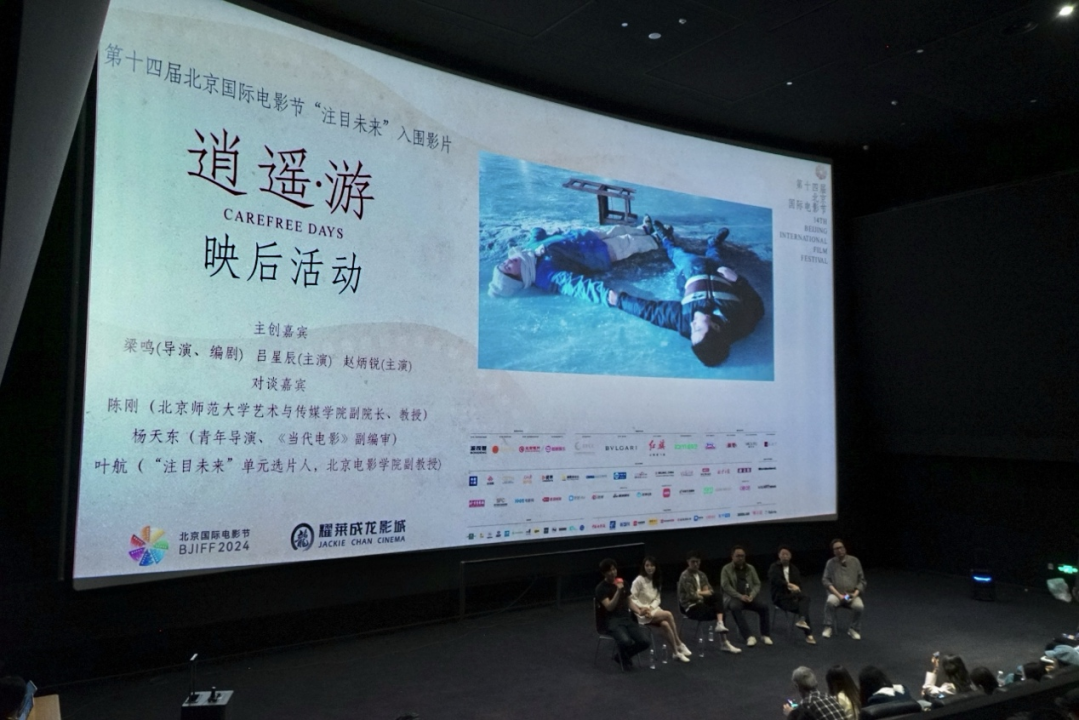
Site of Meet-and-Greet with Cast & Crew
Carefree Days is the second feature film directed by Liang Ming. The film is adapted from Ban Yu's novel of the same name, which tells the story of Xu Lingling, a Northeastern girl who longs for love and family, but suffers from uremia. The family crisis occurs one after another, and the father, an old bastard, returns to family due to his daughter's illness. Xu Lingling gets together with her best friend Tan Na who is also trapped in life and her intimate old classmate Zhao Dongyang for mutual concern and care. A trip of the three reveals the complex human nature and relationships in the human society.
The moderator, Mr. Ye Hang, and the panelist talked with the cast and crew from academic and creative perspectives respectively. The atmosphere was lively with intense collision of ideas.
During the question-and-answer session, the audience displayed active thinking from diverse perspectives; the panelists gave in-depth interpretations to express their emotions and speculations. The cast and crew not only talked with the guests from an academic perspective to explain the profound significance of the film, but also answered the audience from multiple aspects such as creation and practice.
Ye Hang: Let’s invite the director to tell us why he chose to adapt Ban Yu’s novel, Carefree Days, into a film. What has moved you?
Liang Ming: I read this novel written by Ban Yu by chance. I felt very excited at that time and I found the creator's concerns for young people who are easily ignored. As a creator, I often focus on the marginalized grassroot people, and sometimes I also focus on the middle-class or the upper-class people. Whether it is criticism of the upper-class or concerns for the lower-class, the middle-class is the majority in our society. They do not go to first-tier cities, do not talk about their origins, and they have no specific dreams for the future. They just want to live a good life at present.
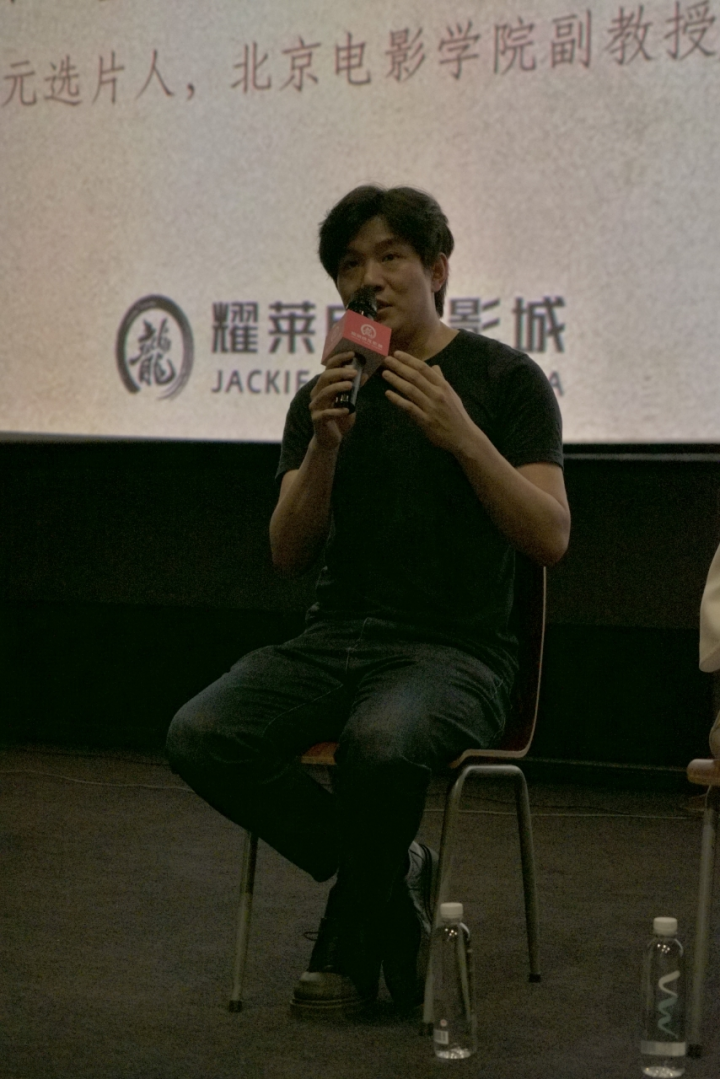
Liang Ming
Ye Hang: The director loves the group and decides to adapt Ban Yu’s novel into a film. What choices did you make and what key issue did you add in the process from literature to video?
Liang Ming: I have watched many films about the Northeast China. Many films focus on the impact of the wave of unemployment at the end of the last century on laid-off workers, but there are no films to present the second-generation of laid-off workers. They are now around 30 years old, which are about the same age as when their parents were laid off.
I adapted the writing with the Northeastern style with many details. The biggest adaptation is to add and replace many details to display many rich moments in life, which constitute this film one after another. For example, the hearse tour, the tofu treasured by mother, father working as a nude model and a series of life details in the film are not described in the novel. I have almost fully constructed a gradual process of life decline.
Ye Hang: My next question is for Lyu Xingchen. You have won many awards for Best Actress with your outstanding performance of the character Xu Lingling. You have also played many different roles of females and does your performance of Xu Lingling have any special meaning to you?
Lyu Xingchen: When I knew I was going to play this role, I thought it was too difficult and far away from me. I tried to play the role with great hesitation, and I did my best. I have made good preparation for the research and interview, and I built friendship with the prototype of the character to understand how the life of a uremic patient is like when she is dealing with the illness and the family.

Lyu Xingchen
Ye Hang: Actually, when I was watching this film, I thought that Lyu Xingchen should be a northeasterner. But during the discussion just now, I realized that she is a southern girl. Therefore, we can see that she tried very hard to get rid of her own dialect or temperament for the sake of performance in the film.
Next, I'd like to ask Mr. Zhao Bingrui, who plays the role with her most. How did you grasp the characteristics of being a bit "considerate" and a bit "scummy " at the same time?
Zhao Bingrui: In fact, I didn't think so much, because I think life is full of absurdity. I didn't feel that the character I play is a scum, I think he's quite good. Therefore, there's no need to pretend that he's so good, and life isn't that good either.
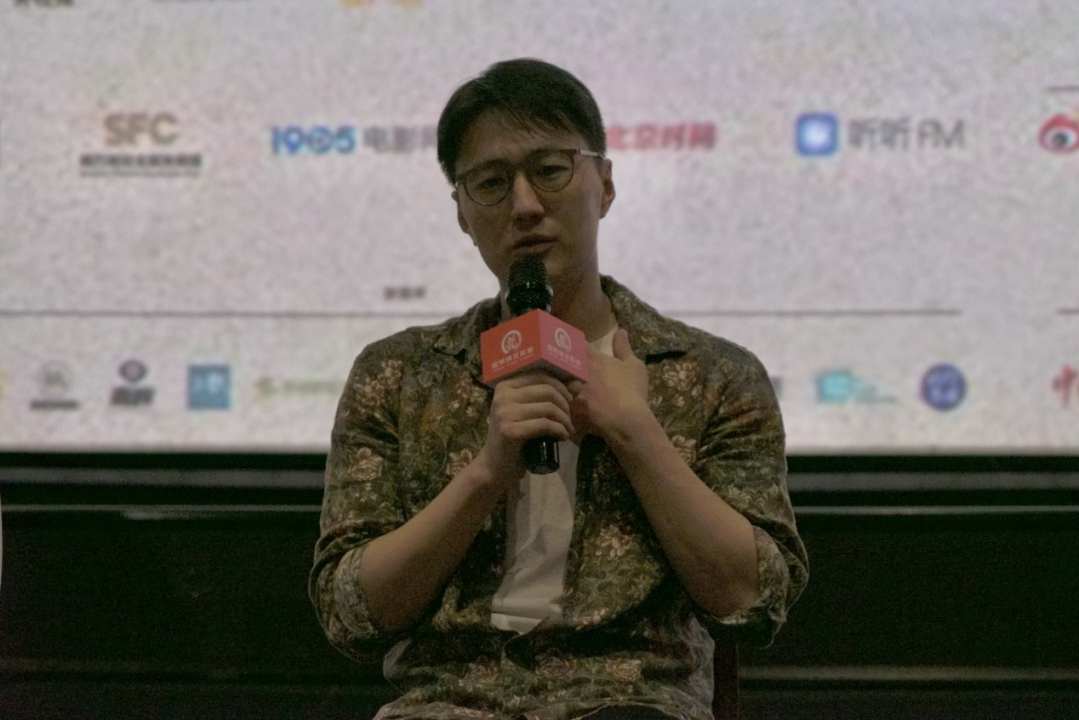
Zhao Bingrui
Ye Hang: I'd like to ask Mr. Chen Gang, what impressed you most in this film?
Chen Gang: There are very few films that are rich in the texture of life in Northeast China, and most of the films are just "fast food" in the recent years. The deepest impression I got from this film is that the Northeast China it describes is the one in current days, instead of the one with empty space-time structure. Few directors have been able to present ice skating, square dancing, and the stagnant streets of Northeast China in a very visually constrained picture.
As for the characters, including the scum you just mentioned, I don't think he's scummy. One of the very good points about the characters in this film is that they're all real people. It never means that they must work hard but they can tolerate the shortcomings of the others. For example, the father in the film is originally abandoned by the reform of state-owned enterprise, but he is willing to return because of the sufferings of the family. I think that's life, and this film shows me the real texture of life.

Chen Gang
Ye Hang: Mr. Yang Tiandong is also from the Northeast China, and I would like to ask you to talk about some of your feelings about the film with Northeastern story or the Northeastern temperament.
Yang Tiantong: I'm from Dalian, and there are some differences with the Northeastern culture. To talk about this film related to Northeast China, I think one of the characteristics is that it doesn't present the inherent impression of Northeast China. I think there are two kinds of films, one is contemporary and the other is emotional. I don't think this film is the ideological one, and it doesn't convey the fate of ordinary people in the great era. However, what the director presents is the uncertainty of emotions, so it is an emotional film.
I need to defend him about what you said about the scum. We have done the phenomenological research, which means he is a subjective feeling of that girl. I think it’s a kind of misunderstanding of the girl, right? She feels that the boy likes her in that situation, but actually I think what the director is presenting is an internal and emotional uncertainty, or a personal feeling of emotion, that is to say, he's not trying to show what a person must be like, and I think the director has done a very good job of presenting that emotion.
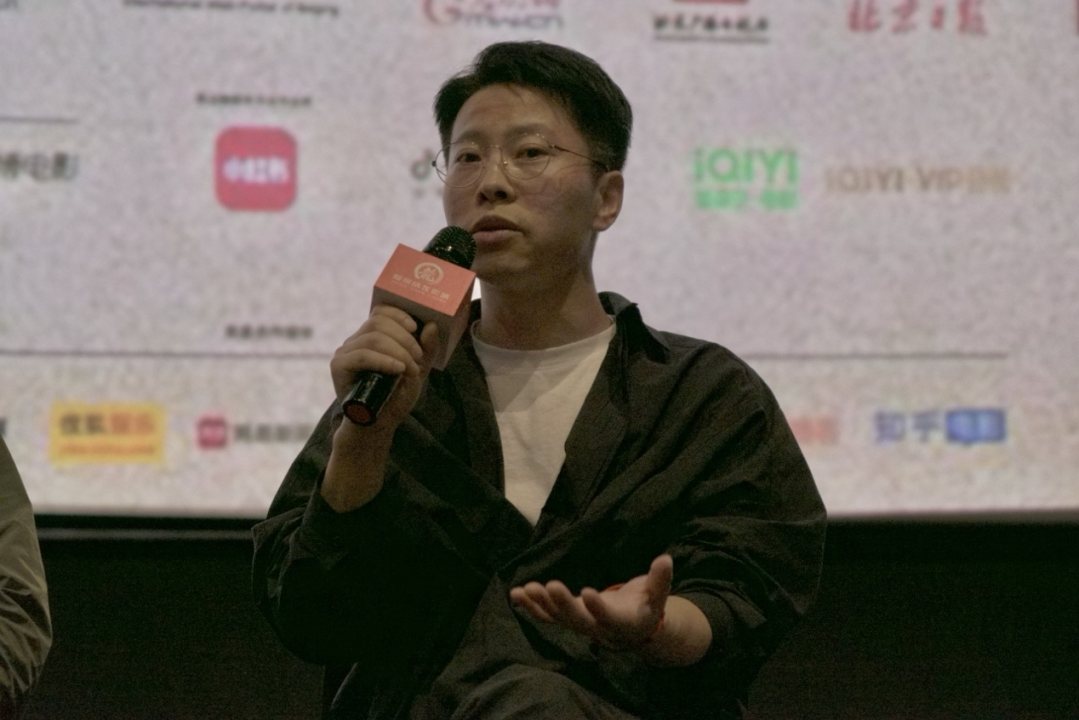
Yang Tiandong
Liang Ming: Different people have different feelings about the scum and we can't make explanations for this behavior.
Ye Hang: Just now we talked about the Northeast China because the director is a Northeasterner. His first feature film Wisdom Tooth and this film, Carefree Days, are both set and filmed in the Northeast China. I wonder whether the next film is still the one about the Northeast China?
Liang Ming: I have the plan to continue with the Northeast story, but the next one is still uncertain.
Ye Hang: I remember you said in a previous interview that this film is the one about the body. In fact, in my impression, your first work is also a film about the body, even the pain that the body brings, or to find an emotional access. This is the most intuitive feeling for me as an audience. Is the body a weapon in your work, or a subject that interests you in particular?
Liang Ming: This is what people analyze or feel when they watch the film. In fact, I don’t intentionally show it this way. I care more about people's feelings, how to move forward against the life suffering, how to talk to themselves, how to get along with others. I prefer the people to be seen and it doesn't matter how things go. What matters to me is how people face it, what they know and what they think. The first film I directed is about a small border town, the marginalized people, and a story at the end of the last century. But this film tells the story of contemporary urban characters, and there's a big difference in dimension.
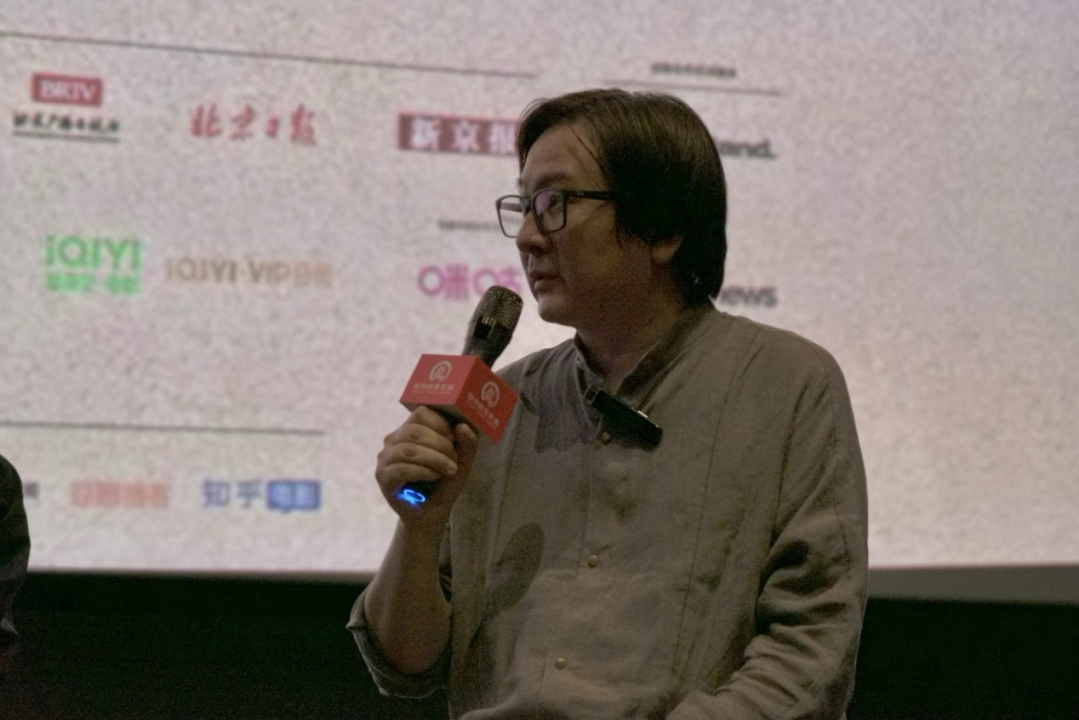
Ye Hang
Ye Hang: My question is for Lyu Xingchen. The character of Xu Lingling has a sense of physical pain on the one hand, and on the other hand, she has lost her relative of her family. I wonder with this double pain, what would be the challenge for your performance? How do you interpret your performance?
Lyu Xingchen: It is a big challenge. Maybe what I can immediately recall now is that Xu Lingling has so many scenes about pain, including the death of her mother, her own illness, her sweetheart, and her best friend, etc. This film presents a lot of soul pain, but every time I face this pain, how can I present it and show Xu Lingling's inner world and feelings. It's very difficult, including the death of the mother. Should I cry right away or just wait before the reaction? And how long does the reaction should last? Everything seems too difficult for me. It is a big challenge for me to keep the balance. And I told the director that when I had this feeling during the shooting, I would try to present it out as much as I could. What I felt at that moment was: I am just Xu Lingling.
Audience: My question is about the script. I know that one of the more important threads of this film is the father-daughter relationship and the daughter's understanding of her father. One of the suspense is that when the plot of sex hormone is revealed, I feel that the daughter doesn’t show too much reaction. I would like to ask the cast and crew that how you understand the daughter's feelings about the emotional changes of her father.
Lyu Xingchen: She does have reaction. When she sees it, she doesn’t know what it is, and she even goes to the hospital for inquiry. She is suspicious of it and she even wonders whether his father is trying to abandon her. When she finds out her father is working as nude model by chance, she walks a long way until it gets dark. She then walks to a square full of dancing people to buy a fried skewer, which may be fatal for her if she takes it. She punishes herself in that way because she has never thought that her father, who she used to believe was such a jerk, would do such work to support her.
Liang Ming: Everyone likes to save face, especially the Northeasterners. Working as a nude model is in fact a job that Xu Fuming is reluctant to do, because that job means he has no money. It’s very hard for him to admit that he has no money. For her father, Xu Lingling denies all his behaviors many years ago from the beginning to the end. However, she never expects the one who accompanies her in the end is just her father. She never shows a smile to her father and she knows that he has eaten the tofu. I think it is at that moment that Xu Lingling is close to the "carefree" moment for the first time, that is, she really starts to accept, know and understand her father.
Audience: My question is for the director. How did your previous work experience influence your audiovisual choices for the film? As for the Titanic mentioned during the filming of fishing boat in Shanhaiguan at night, is this an improvise clip or a long time consideration?
Liang Ming: I'll answer the second question first. When we were looking for the scenery, we aimed at the frozen sea and the sunset in the evening. However, it was incredible that there appeared a kind of ice wave, and the frozen sea was totally melted with collision of the ice cubes. We thought it was so amazing at that time. I sometimes think that the most wonderful moment of a film lies in the uncertainty. When I'm writing a script, I don't want the film is over in my mind once I have finished it. I hope it to be unknown. So, we all felt like it was really a gift from God for Lingling to embark on the trip that night and we hoped everyone could enjoy a wonderful moment together. It also seemed like the god of film was in favor of the crew. Now, I will come back to the first question about the smile in Titanic, it was revealed by Tan Na (Li Xueqin) herself on the site.
Please download the Beijing International Film Festival APP for more interesting content

